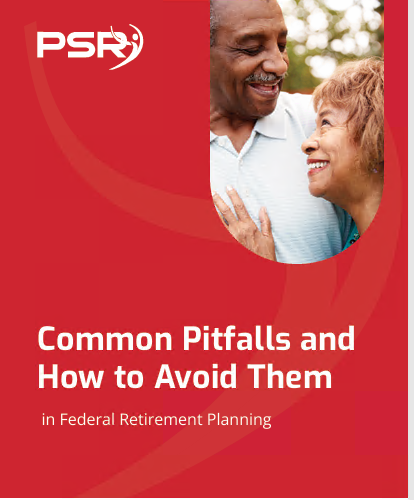Key Takeaways
- Divorce can significantly impact your federal retirement benefits, including pensions, TSP, and health insurance. Knowing your rights and options is critical to protecting your financial future.
- A clear understanding of federal rules and proactive planning can help ensure your retirement isn’t derailed by a divorce settlement.
How Divorce Impacts Federal Retirement Benefits
Divorce isn’t just an emotional process—it’s also a financial one. For federal employees and retirees, this can be even more complex due to the unique rules governing federal retirement benefits. From your FERS or CSRS
- Also Read: Divorce and Your Federal Pension—What Happens When You Split Assets and How It Could Affect Your TSP
- Also Read: What Happens to Your Federal Benefits After Divorce? Here’s the Lowdown
- Also Read: The Best FEHB Plans for 2025: Which One Fits Your Lifestyle and Budget the Best?
Your Federal Pension: What’s at Stake?
Division of Pensions in Divorce Settlements
Federal pensions under the Federal Employees Retirement System (FERS) or the Civil Service Retirement System (CSRS) are often subject to division during divorce proceedings. The court will typically use a court order acceptable for processing (COAP) to decide how your pension is split. This order must comply with federal regulations to ensure it is enforceable by the Office of Personnel Management (OPM).
The most common approach is to divide the pension based on the marital share, which considers how long you were married during your federal service. For example, if you were married for 10 out of 30 years of service, your spouse may be entitled to one-third of your pension.
Survivor Benefits: Critical Decisions to Make
If your former spouse is awarded survivor benefits, you’ll need to elect this option when you retire. This reduces your monthly annuity, so you’ll want to weigh the long-term financial impact carefully. Importantly, if you remarry before age 55, the survivor annuity for your former spouse may be forfeited unless you take specific steps to preserve it.
What Happens to Your Thrift Savings Plan (TSP)?
Splitting the TSP
Your TSP is another asset likely to come under scrutiny during a divorce. The division is usually determined by a retirement benefits court order (RBCO). Like pensions, this order must meet federal standards to be valid.
You can expect your TSP to be divided as a percentage or specific dollar amount. Transfers to your former spouse’s account are tax-free, provided they go into another retirement account like an IRA.
Protecting Your Future Contributions
Even after the division of your TSP, you retain full control over future contributions. This makes it crucial to adjust your savings plan to ensure you stay on track for retirement.
Health Insurance and FEHB Coverage
Eligibility for Coverage Post-Divorce
Your Federal Employees Health Benefits (FEHB) coverage is one of your most valuable benefits. However, your former spouse will lose eligibility for FEHB unless they qualify for Temporary Continuation of Coverage (TCC) or enroll in private insurance.
Impact of Coordination with Medicare
If you’re nearing age 65, you’ll want to consider how your FEHB coverage interacts with Medicare. While your spouse’s loss of FEHB won’t affect your coverage, you may need to revisit your health insurance strategy.
Social Security and Divorce: What You Need to Know
Social Security Benefits for Ex-Spouses
If you’ve been married for at least 10 years, your former spouse may qualify for Social Security benefits based on your earnings record. This doesn’t reduce your benefits, but it’s important to understand how these rules work.
Your ex-spouse can claim up to 50% of your Social Security benefit at their full retirement age if they remain unmarried and meet eligibility criteria.
The Windfall Elimination Provision (WEP) and Its Effects
If you’re a CSRS retiree, the WEP may reduce your Social Security benefits. It’s essential to know how this interacts with divorce settlements, as it could influence financial decisions for both you and your ex-spouse.
Life Insurance and FEGLI Policies
Updating Your Beneficiaries
After a divorce, updating your Federal Employees’ Group Life Insurance (FEGLI) beneficiaries is critical. Failure to do so could result in your benefits being paid to your ex-spouse, regardless of your current intentions.
Court Orders and Life Insurance
In some cases, a court may require you to maintain your FEGLI policy for the benefit of your ex-spouse or children. This obligation can impact your long-term financial plans, so make sure you account for it in your budget.
Planning for the Future: Key Steps to Take
Consult Legal and Financial Experts
Navigating the complexities of federal retirement benefits requires expert guidance. Consult an attorney experienced in federal benefits and a financial planner who understands the nuances of your retirement package.
Keep Detailed Records
Ensure you have comprehensive records of your federal employment, including service dates and benefit statements. This information will be invaluable during divorce negotiations.
Adjust Your Retirement Plan
Divorce often alters your retirement timeline and financial goals. Reassess your savings, pension, and health insurance plans to ensure they align with your new reality.
Take Advantage of Open Season
Federal employees and retirees can use the Open Season period to make adjustments to health insurance plans. This is an excellent opportunity to reassess your coverage in light of your changed circumstances.
How Timing Affects Your Benefits
The 10-Year Rule for Marriage
The length of your marriage plays a crucial role in how your federal benefits are divided. For instance, Social Security benefits require at least 10 years of marriage for your ex-spouse to claim benefits on your record.
Retirement Timing Matters
The timing of your retirement can also impact how benefits are divided. For example, if you retire before the divorce is finalized, your ex-spouse may receive a larger share of your pension.
Avoiding Common Pitfalls
Ignoring the Details
One of the biggest mistakes you can make is failing to fully understand the terms of your divorce settlement. Review all court orders carefully to ensure they align with your interests.
Forgetting to Update Documents
From beneficiary forms to wills, updating all relevant documents after your divorce is crucial. Overlooking this step can lead to unintended consequences.
Neglecting Long-Term Planning
Divorce can derail your retirement plans if you’re not proactive. Regularly revisit your financial goals and adjust your strategy as needed.
Ensuring Your Financial Independence
Divorce is challenging, but it doesn’t have to compromise your retirement. By understanding how federal benefits are impacted and taking proactive steps to protect your interests, you can emerge financially secure and prepared for the future.













